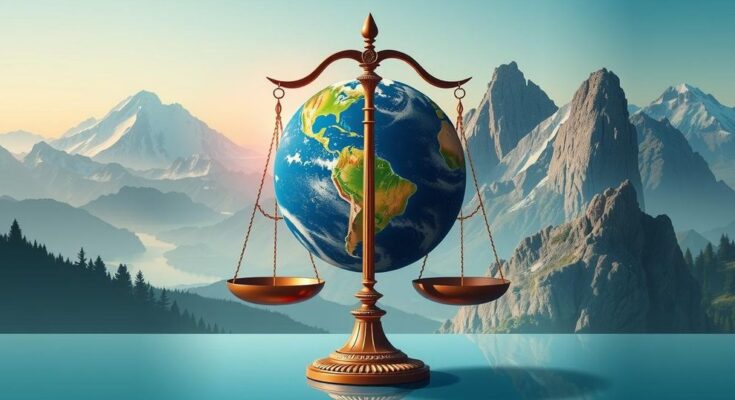The UN Human Rights Council begins its session in Geneva this Monday amidst a changing global landscape. This year’s inaugural gathering will lack the presence of the United States, faced with financial constraints and shifting geopolitical dynamics. During the six-week session ending April 4, the 47 member states will deliberate over pressing human rights issues across a range of nations and crises, with the ongoing conflicts in Ukraine and the Middle East at the forefront.
The absence of the United States is significant, marked by Donald Trump’s recent announcement to withdraw entirely from the Council. This decision follows Israel’s boycott, with the US previously accusing the Council of harbouring an “anti-Israel bias” and comprising states with dubious human rights records. The withdrawal is seen as a setback to multilateralism by analysts like Vincent Chetail from the Geneva Graduate Institute, though he believes it will not drastically alter the Council’s function as the US had lost voting rights earlier this year.
For the first time, Switzerland will preside over the Council, with Ambassador Jürg Lauber assuming a largely ceremonial role. Lauber emphasises the Council’s importance for global human rights discourse and encourages all nations to participate constructively. Despite the concerns, he reiterates that the Council remains vital for intergovernmental exchanges on human rights issues.
Financial apprehensions loom over the Human Rights Council, given that the US contributes significantly to the UN’s budget, accounting for one-third of its funding. The recent freeze on US development aid has caused unrest among UN agencies reliant on these funds. Although the current budget of the Human Rights Council remains secure, long-term effects of US cuts could intensify existing liquidity crises and favour wealthier nations like China.
China, previously seizing the moment during a similar US withdrawal from the Council between 2018 and 2021, may once again seek to proliferate its influence and reshape discussions around human rights priorities. European diplomats point out that Beijing is likely to propose initiatives that showcase its commitment as a stabilising force amid a changing world order. This shift could lead to increased space for various nations to assert their agendas, as highlighted by Phil Lynch from the International Service for Human Rights.
The dynamic of the Council and the influence of other states will become more apparent as sessions progress. Professor Chetail suggests that the true nature of this new balance of power will crystallise only after the session concludes, as nations vie for control over human rights discussions and resolutions. Amidst the backdrop of shifting allegiances, the Council’s role will be tested and defined in the coming weeks.
The UN Human Rights Council’s session in Geneva begins amidst a rebalancing of global power and the absence of the United States due to its withdrawal. The Council will face budgetary challenges following significant cuts in US funding, potentially altering its long-term functionality. China is poised to expand its influence during this session, navigating the shifting landscape of human rights discourse.
The UN Human Rights Council is grappling with significant changes as it begins its session without the participation of the United States. Financial cuts from Washington stand to impact the Council’s operations, while other nations, particularly China, may exploit this vacuum to extend their influence. As key global conflicts are addressed, the balance of power within the Council may evolve substantially, redefining international discourse on human rights.
Original Source: www.swissinfo.ch



